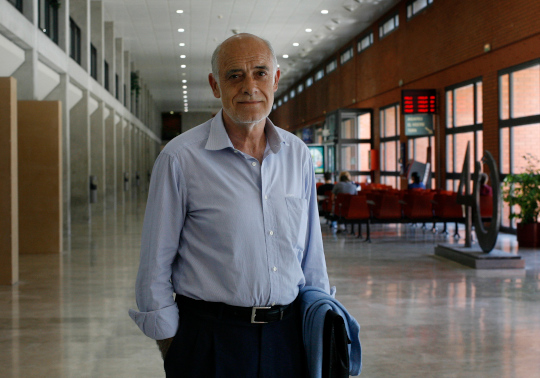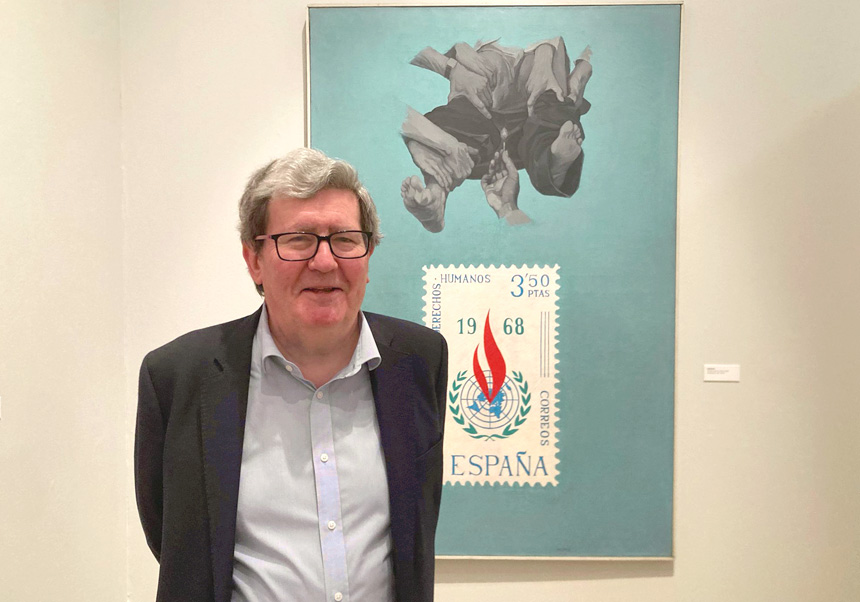Joaquín Azagra presents his book ‘Regiones ricas, regiones pobres. La indefinición valenciana’ in ‘La Nau’
- Office of the Vice-Principal for Culture and Society
- April 5th, 2019

The professor in Economic History of the Universitat de València Joaquín Azagra, will present on Monday, the 8th of April, his last book ‘Regiones ricas, regiones pobres. La indefinición valenciana’, in the ‘Aula Magna’ of the Cultural Centre ‘La Nau’ at 7 p.m. The act will count with the presence of Antonio Ariño, vice-principal of Culture and Sports of the Universitat de València and Francisco Goerlich, professor in Analysis of Content in the Universitat de València. The entry is free until seating capacity.
Joaquín Azagra is the senior lecturer of Economic History of the Universitat de València and has given classes in universities of Basque country and Murcia. He is the author of seven books and more than fifty articles about different aspects of the social and economic change of the 21th century and the late 20th century, especially in the Valencian territory. He has held different public positions in the academic space, (vice-principal of the Universitat de València and director of the International University Menendez Pelayo), and outside of it, (civil governor, advisor and spokesman of the Govern of the Generalitat Valenciana).
‘The dynamism of the Valencian society in the last decades of the 19th century and the early 20th century, generated an imaginary inside and outside, which placed it as one of the most advanced in Spain’ affirms Azagra in his book. However, that ‘happy east’ based on the modernity and sustained by a massive tourism and big constructions contrasting with a social unequal reality, which was far from the most leading edge regions and located the Valencian capita income below the average. Has been possible to overcome this inefficient productive model in the era of globalization?
In ‘Regiones ricas, regiones pobres. La indefinición valenciana’ the professor tries to track the distributive mismatch of the community through the analysis of the economic data registered so far and how the social Valencian structures have been affected. Furthermore, pretends to demonstrate the persistency of inertias and interests which difficult the change towards a more productive model. He also adds a series of future recommendations.
The book published by the ‘Institució Alfons el Magnánim’ and the ‘Centre Valencià d’Estudis i d’Investigació’, is the fourth book in the collection ‘Descobrim.’










